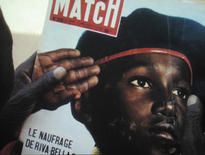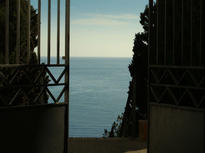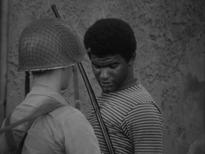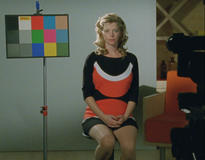BIENAL DE LA IMAGEN EN MOVIMIENTO
SCREENING
Politically Today is a curated screening program in three parts that Argos presents at BIM - Bienal de la Imagen en Movimiento in Buenos Aires. Each program presents recent films from the Argos collection in which the filmmakers politically engage on contemporary socio-political matters. The films mostly start from a reflection about what has happened in the second half of the 20th century, however the aim is neither to establish a hierarchy or inventory. Rather we face different modus operandi in which audiovisual artists investigate our recent past in order to question the present times. Through the presented films, we see how first-hand or intimate experiences are often linked to the Great History, how media and archival material contributed to shape our collective memories and perceptions, and ultimately how most of the questions raised in the past are still unsolved today. Historically, the turning point seems to be the period starting from the end of the Fifties to the early Seventies when the decolonization embraced the entire African continent and the process of European integration (e.g. the Merger Treaty in 1967) and globalization have accelerated. The artistic production of that period – let only think about figures like, among others, Jean Rouch, Chris Marker or Jean-Luc Godard – is also of a great influence for the practices of the presented artists. Furthermore, the post-68 political and philosophical debates, both in cinema and visual arts, shape the current manners of making films and thinking in terms of moving images. In those years the notion of “global village” introduced by Marshall McLuhan became reality: this ability to connect, show images and trade ideas instantly amongst the nations of the world probably finds its most iconic example in the TV live broadcast of Neil Armstrong's walk on the Moon on Monday July 21st 1969. Today artists are beyond this enchantment, they dig for relevant informations and make a critical use of those audiovisual sources without forgetting to question production techniques. Yet Politically Today doesn't indulge in nostalgia for a period that most of the artists presented in the programs hasn't experienced. Instead these films show how contemporary filmmakers reap the rewards of those intellectual and aesthetic researches. All in all what is necessary today is, while we are still learning from the past, to be actively engaged and to look towards the future. Dissecting historical facts becomes therefore a way to claim new narrativies, alternative positions and independent discourses.
With films by Herman Asselberghs, Libia Castro & Ólafur Ólafsson, Rob Jacobs & Anne Reijniers, Vincent Meessen, Miguel Peres dos Santos, Edurne Rubio, Shelly Silver, Sarah Vanagt & Katrien Vermeire, and An van. Dienderen.
Subevenementen




-
do 01.11.2018
- zo 11.11.2018
- Praktische info